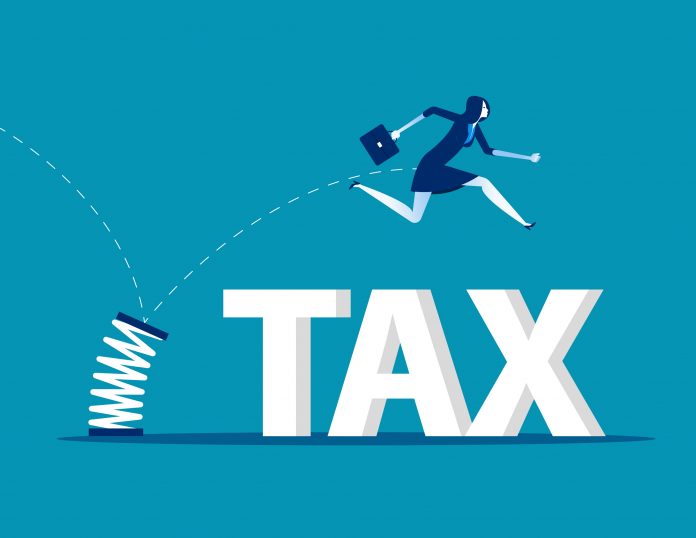This article is written by Aditya Chauhan, pursuing a Diploma in Companies Act, Corporate Governance and SEBI Regulations from LawSikho. The article has been edited by Amitabh Ranjan (Associate, LawSikho) and Dipshi Swara (Senior Associate, LawSikho).
Table of Contents
Introduction
There are two types of taxes in India: Direct Tax and Indirect Tax. Direct tax is levied on the different types of business and individual’s income that they acquire in a financial year. Corporation Tax which is also known as Corporate tax is also a direct tax that is levied on the net income or the profit of the business. Corporate income-tax (CIT) is levied in both domestic and foreign companies. The tax is imposed as per the provisions mentioned under the Income Tax Act, 1961, CIT changes annually in every Union budget. With the tax imposition the practices like saving tax, tax evasion, tax avoidance and tax fraud is nothing new that Corporate business use to save some money. In November 2020, the State of Tax Justice report said that India loses over 10.3 billion dollars(about 75,000 crore rupees) in taxes every year, about 10 billion dollars of tax abuse is committed by Global MNCs.
Types of Corporate Entities
Corporations are artificial identities that have rights and duties of their own. In India the corporate entities are divided into two categories:
- Domestic Corporation:
Companies that are incorporated in India under Companies Act, 2013 are known as domestic companies. Even the foreign companies can be considered domestic if its business is wholly based in India.
- Foreign Corporation:
Companies that are of overseas origin and the control and management of the companies are done from outside India are called foreign companies.
The tax levied on both is different and subject to change in every Union budget.
Different methods used by corporations to save tax
- Tax Planning:
Tax planning is a legal way to reduce the tax liability by using different provisions of the law. It helps the taxpayers to reduce their tax liability through different ways such as tax rebates, credit applying deductions and the exemptions provided under the tax law. It is a legal procedure and any taxpayer can use it to save their tax to some extent.
- Tax Avoidance:
In the process of tax avoidance the taxpayers reduce their liability by the loopholes in the Income tax act. This is a legal method and very much similar to tax planning, the only difference is the methods used for tax avoidance are not prescribed in law.
- Tax Evasion:
Tax evasion is a legal method to reduce the tax liability by using illegal ways. The goal of tax evasion is to reduce the burden of the tax and evade profits. The different practices like making false statements, hiding relevant documents, improper records, showing false expenses, etc.
Listed penalties for tax evasion under Income Tax Act
Tax evasion is a criminal offence under Chapter XXII of the Income-tax Act, 1961, non-compliance of Income Tax rules can result into penalty or even a jail of a maximum term of 7 years, following are the instances:
- Failure to file Income Tax Return:
Every company has to file its ITR on 30 October every year. Not filing income tax return as per Section 139(1) of Income Tax Act, the assessing officer can penalize you with a penalty of Rs.5,000 or more.
- Not paying Tax as per self-assessment:
According Section 140A(1), if the taxpayer fails to pay whole or some part of self-assessment tax or interest then the taxpayer will be treated as a defaulter. According to Section 221(1) defaulters can be charged with penalty by the assessing officer. Officers can exempt you from paying a penalty if you provide a reasonable explanation.
- Concealing Income to evade tax:
100% to 300% penalty can be imposed on the tax evaded as per section 271(C) of Income Tax Act for giving the false information. Section 271 AAB list the different penalties as per the scenarios:
a) 10% penalty of the taxpayer admits to not disclosing the amount for previous year.
b) Penalty of 20% if a person doesn’t disclose the amount for previous year but does so in return income furnished previous year.
c) 30% to 90% of penalty can be levied for not disclosing the amount for previous year.
- Not Complying with income tax notice:
Under Section 142(1) or 143(2) if a person fails to comply with the notice issued by Income tax, then the assessing officer can issue a notice asking to file the income tax return.
Offences and Penalty Under GST Act, 2017
Chapter XIX, section 122 of Central Goods and Services Tax (CGST) Act, 2017 mentions 21 offences which are liable to penalty and Section 122(1) of the same talks about evasion or non-payment of tax, it includes the following:
- Collecting GST but not submitting to the government within 3 months.
- Obtaining CGST or SGST by fraud.
- Suppressing sale to evade tax
- Utilizing tax credit without the actual tax receipt
Offences that involves commission of fraud are:
- Fraudulently obtaining the refund of tax or falsifying the records or producing fake accounts or documents with an intention to evade the payment of tax.
- Suppressing turnover of the business.
- Destroying any document that is material evidence.
- Furnishing false information with regard to the registration at time for applying for registration or otherwise.
Penalties fine and prosecution under GST laws:
As per Section-122(2) any registered person who supplies any goods or services or both on which tax has not been paid or short-paid or erroneously refunded, or where the input tax credit has been wrongly availed or utilised:
- For any reason, other than the reason of fraud or any wilful misstatement or suppression of facts to evade tax, shall be liable to a penalty of ten thousand rupees or ten per cent. of the tax due from such person, whichever is higher;
- For reason of fraud or any wilful misstatement or suppression of facts to evade tax, shall be liable to a penalty equal to ten thousand rupees or the tax due from such person, whichever is higher.
Under Section 128, the Government may waive any penalty partly or wholly that isreferred in offences under section 122 or section 123 (penalty for failure to furnish information/return) or section 125 (general penalty) or any late fee in section 47 for such class of taxpayers and under such mitigating circumstances as may be specified therein on the recommendations of the Council.
Disputes and Legal Recourse
Sometimes disputes can arise and they either can be of procedure-related or they can be tax-related and when the tax officer sees non-compliance of rules and they differ from the views of the person they are imposed on, the conflict arises and the initial resolution for such is by quasi-judicial process.
For legal recourse the company may move to Income Tax Appellate Tribunal(ITAT), which is a quasi-judicial body established especially for raising appeal regarding income tax related matters.

Procedure of Appeal
The appeal must be filed within 60 days during which the order against the person is communicated to the taxpayer or the tax commissioner.
To file an appeal to ITAT the form no. 36 must be filed with prescribed fees. The GST Act defines “adjudicating authority” under section-107 as an authority competent to pass any order or decision for further appeals the person shall move to First Appellate Authority and can later move to National Appellate Tribunal (section-109 Section-110) in case of non-satisfaction the person may move to superior courts like High Court (Section 111- section 116) and Supreme Court(section 117- section 118).
Those unhappy with the decision of the first appellate authority, can file an appeal against the decision to the National Appellate Tribunalwithin 3 months from the date of the notice communicated to the person.
All the GST based appeals are to be made by following prescribed procedure and filing form GST APL-01.
Conclusion
Tax is an important source of income for a government and for the development of the country. To pay Income tax is a duty of every individual and company, to not impose the tax burden there are tax rebates and many schemes that government provides, so that company can save some portion of their net profit, and the other reason for giving rebates is that to somehow stop companies and individuals resort to illegal methods like tax evasion and tax frauds. The tax slabs sometimes can look unfair but the rebate is one way for taxpayers to save some part of the income legally. If the individual is not satisfied with the tax assessment or they face any issue regarding the tax related charges imposed on them, there is an e-portal of Income tax of India to resolve such issues and if the further dispute arises, there are provision of quasi-judicial tribunals to resolve the issues and the person can further take the matter to higher judicial bodies if not satisfied with the decisionof the tribunal.
Hence, tax fraud, non-compliance of the rules and disputes arising from the wrong charges by tax officers is something that happens everyday in the system and there are punishments and authorities to resolve issues of charges that are imposed wrongly.
References
- https://timesofindia.indiatimes.com/business/faqs/income-tax-faqs/income-tax-evasion-know-about-penalties-under-income-tax-act/articleshow/59895566.cms
- https://taxguru.in/income-tax/tax-planning-vs-tax-avoidance-vs-tax-evasion.html
- https://www.business-standard.com/article/economy-policy/india-losing-10-3-bn-in-taxes-per-year-due-to-tax-abuse-by-mncs-report-120112001332_1.html
- https://icmai.in/TaxationPortal/upload/IDT/Article_GST/210.pdf
- https://cleartax.in/s/offences-and-penalties-gst
- https://blog.ipleaders.in/procedure-tax-appeals-india/
- https://cleartax.in/s/gst-appeals
- Goods and Services Tax Act, 2017
- Income Tax Act, 1961
Students of Lawsikho courses regularly produce writing assignments and work on practical exercises as a part of their coursework and develop themselves in real-life practical skill.
LawSikho has created a telegram group for exchanging legal knowledge, referrals, and various opportunities. You can click on this link and join:
https://t.me/joinchat/J_0YrBa4IBSHdpuTfQO_sA
Follow us on Instagram and subscribe to our YouTube channel for more amazing legal content.
 Serato DJ Crack 2025Serato DJ PRO Crack
Serato DJ Crack 2025Serato DJ PRO Crack










 Allow notifications
Allow notifications


